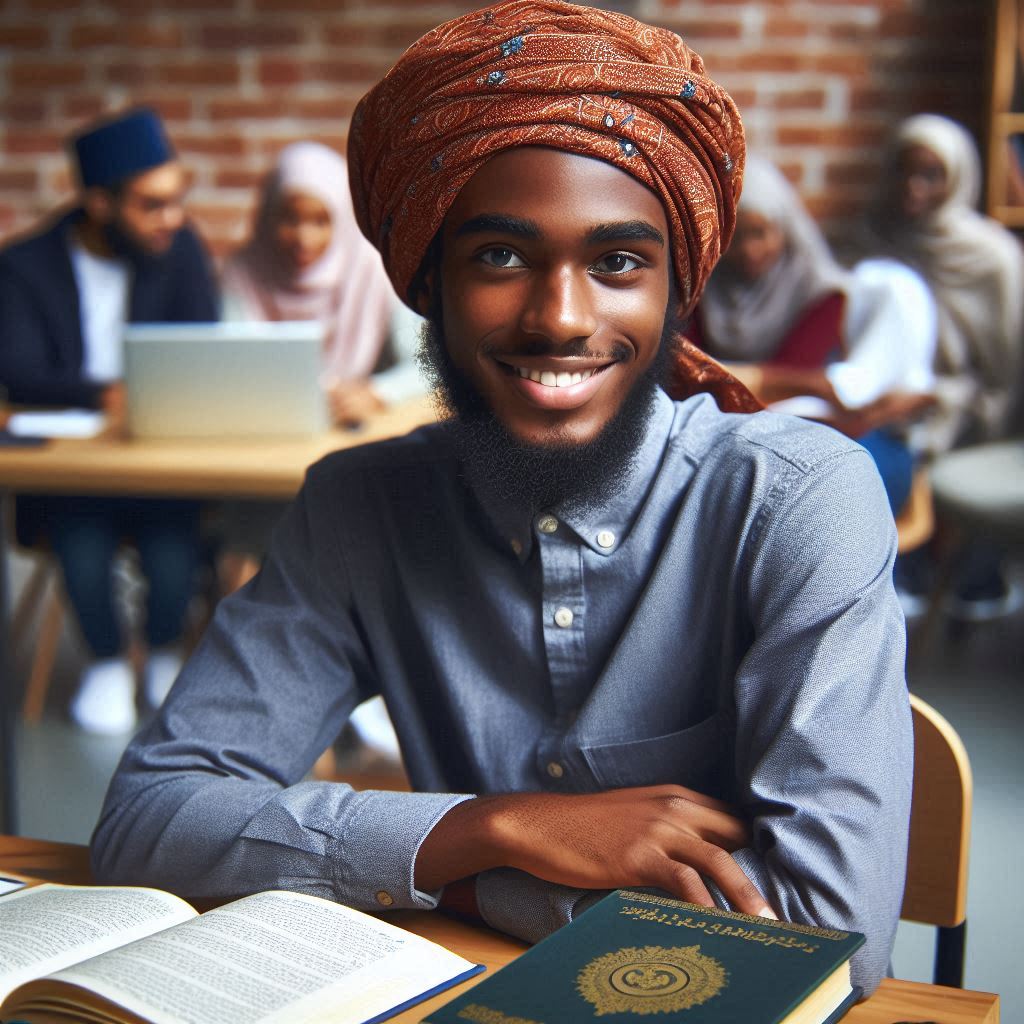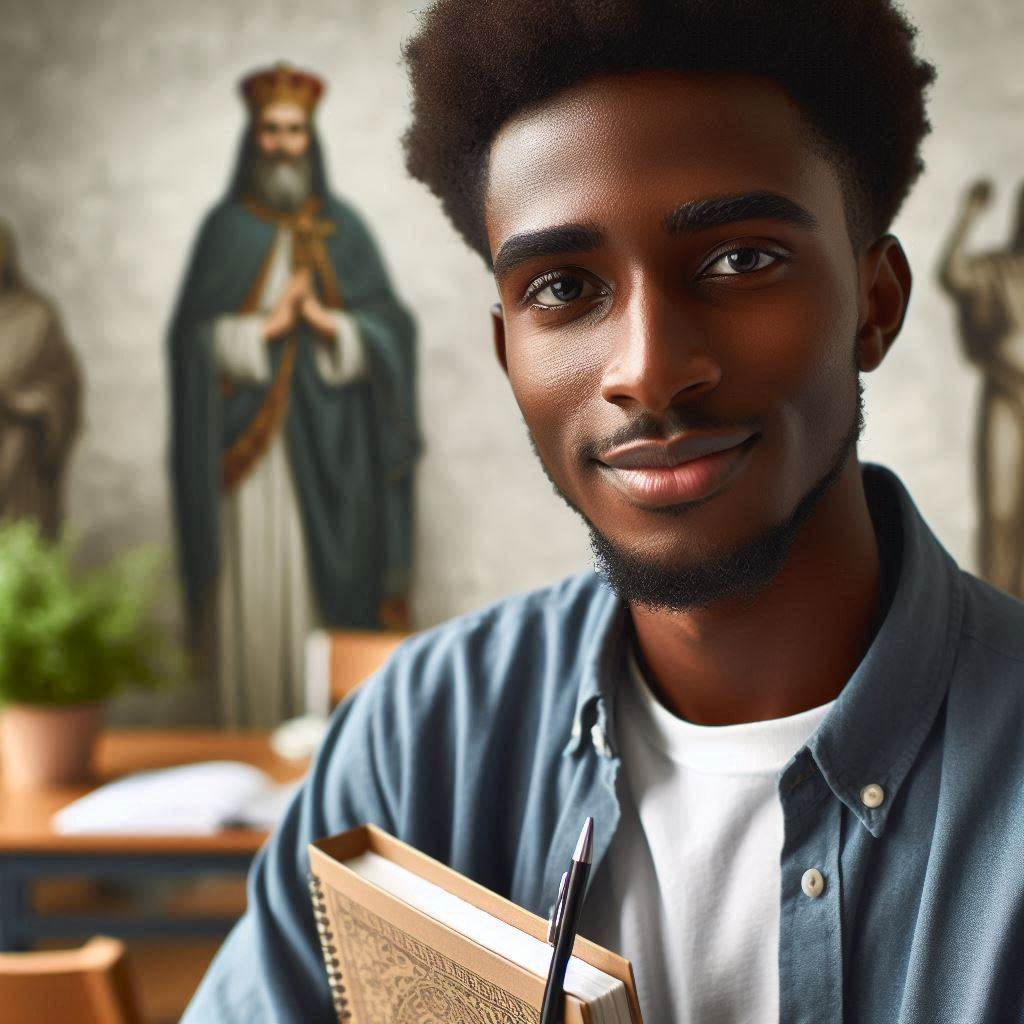Introduction
Nigeria boasts a rich tapestry of cultural heritage and religious practices. With over 250 ethnic groups, the country is a vibrant mosaic of traditions.
Each group contributes unique customs, languages, and beliefs to the national identity.
Cultural heritage in Nigeria includes art, music, dance, festivals, and cuisine. These elements highlight the diversity and creativity within the country.
Traditional music and dance, like the Yoruba talking drums and Igbo masquerades, are celebrated nationwide.
Religious practices in Nigeria are equally diverse. The major religions are Islam, Christianity, and traditional African religions.
Each religion is deeply rooted in the communities and influences various aspects of life.
Islamic festivals like Eid al-Fitr and Christian celebrations like Christmas are observed with great fervor.
Traditional African religions, with their rituals and ceremonies, continue to play a significant role in the cultural fabric.
Preserving Nigeria’s cultural diversity is crucial for fostering unity and national pride.
Celebrating different cultures helps build mutual respect and understanding among communities.
It encourages dialogue and reduces ethnic tensions, promoting peace and stability.
Cultural heritage also contributes to the economy through tourism.
Festivals like the Osun-Osogbo Sacred Grove and the Argungu Fishing Festival attract visitors globally.
These events showcase Nigeria’s rich traditions and boost local economies. Education plays a key role in preserving cultural heritage.
Incorporating indigenous knowledge and practices into the curriculum ensures that younger generations appreciate their roots.
Schools and cultural institutions should actively promote and teach about Nigeria’s diverse heritage.
In essence, Nigeria’s cultural heritage and religious practices are integral to its identity.
Celebrating and preserving this diversity is vital for unity, economic growth, and global recognition.
By embracing and promoting cultural diversity, Nigeria can strengthen its national fabric and enhance its global standing.
Diversity of ethnic groups
Nigeria is a melting pot of diverse ethnic groups such as Hausa, Yoruba, Igbo, Fulani, and many more.
Each group has its unique language, traditions, beliefs, and practices that contribute to the rich cultural heritage of Nigeria.
The Hausa people, located in the northern part of Nigeria, are known for their vibrant music, colorful attire, and delicious cuisine.
Various ethnic groups in Nigeria
The Yoruba ethnic group, predominantly found in the southwestern region, is known for their elaborate festivals, artwork, and traditional religion.
The Igbo people, located in the southeastern part of Nigeria, are known for their intricate masquerades, lively dances, and rich folklore.
Likewise, the Fulani ethnic group, primarily nomadic herders, contribute to Nigeria’s cultural diversity through their unique way of life and traditions.
How each group contributes to the country’s cultural heritage
The diverse ethnic groups in Nigeria bring a wealth of knowledge, skills, and creativity to the country’s cultural landscape.
They preserve ancient traditions, pass down stories through oral history, and create beautiful crafts that showcase their heritage.
Additionally, these groups celebrate their cultural practices through colorful festivals, traditional ceremonies, and religious rituals that showcase the richness of Nigeria’s cultural heritage.
Importance of respecting and celebrating the differences
It is crucial to respect and appreciate the differences among Nigeria’s ethnic groups to foster unity, harmony, and mutual understanding.
By celebrating diversity, Nigerians can learn from one another, bridge cultural gaps, and promote a more inclusive society.
Embracing the uniqueness of each ethnic group helps to preserve Nigeria’s cultural heritage for future generations and promotes a sense of national pride.
Read: Religious Studies in Nigerian Secondary Education
Traditional religious practices
Nigeria is a diverse country with over 250 ethnic groups, each with its own unique traditional religious practices.
Rituals, Beliefs, and Customs
Traditional religions in Nigeria involve a wide array of rituals, beliefs, and customs that are deeply rooted in the culture of the various ethnic groups.
These rituals could range from offerings to the gods, sacred dances, festivals, and ceremonies to honor ancestors and spirits.
Beliefs in traditional Nigerian religions often revolve around the existence of supernatural forces, deities, and spirits that intercede in the lives of individuals.
Preservation of Traditional Practices
Preserving traditional religious practices in Nigeria is crucial for several reasons.
Firstly, these practices are an essential part of the cultural identity of the various ethnic groups in Nigeria.
By preserving traditional religious practices, communities can maintain their unique heritage and pass it on to future generations.
Furthermore, traditional religious practices often play a significant role in maintaining social cohesion and unity within communities.
Transform Your Career with Expert Guidance
Get personalized mentorship consulting that’s tailored to your unique path. Our expert advice is actionable and exclusive.
Get StartedThey serve as a source of comfort, guidance, and inspiration for individuals facing challenges or seeking spiritual fulfillment.
In fact, traditional religious practices in Nigeria are deeply intertwined with the cultural heritage of the diverse ethnic groups in the country.
By exploring, understanding, and preserving these practices, we can ensure the continued celebration of Nigeria’s rich cultural diversity and heritage.
Read: Scholarships for Religious Studies in Nigeria
Influence of Christianity
Impact of Christianity on Nigeria’s cultural heritage
- Christianity has had a significant impact on Nigeria’s cultural heritage.
- The introduction of Christianity brought changes in social structures and norms.
- It influenced art, music, and literature, creating a blend of traditional and Christian elements.
- Christian missionaries played a role in educational development and the spread of Western ideas.
- Christianity also impacted the language, with many Nigerians adopting English as a result.
How Christianity shaped religious practices in Nigeria
- Christianity brought new religious practices and beliefs to Nigeria.
- It led to the establishment of churches and the spread of Christian teachings.
- The Christian faith influenced the way Nigerians worship and express their spirituality.
- Many Nigerians now celebrate Christian holidays and participate in church activities.
- Christianity has also influenced moral values in Nigerian society.
Importance of recognizing and respecting Christian traditions
- Recognizing and respecting Christian traditions is essential for social cohesion.
- It promotes understanding and tolerance among different religious groups.
- Respecting Christian traditions acknowledges the cultural diversity present in Nigeria.
- It fosters unity and encourages dialogue between Christians and followers of other religions.
- By respecting Christian traditions, Nigeria can uphold its reputation as a diverse and inclusive society.
Read: Key Figures in Nigerian Religious Studies

Influence of Islam
Islam has played a significant role in shaping Nigeria’s cultural heritage and religious practices.
The spread of Islam in Nigeria has had a profound impact on the country’s diverse landscape.
Impact on Cultural Landscape
Islam was first introduced to Nigeria through trans-Saharan trade routes, primarily in the northern regions of the country.
Over time, Islam spread throughout Nigeria, influencing various aspects of society.
Islamic architecture, such as mosques and palaces, can be found across Nigeria, showcasing the rich cultural heritage influenced by Islamic traditions.
Arabic calligraphy and geometric patterns are also prevalent in Nigerian art and design.
Islamic music and literature have become integral parts of Nigeria’s cultural landscape, with traditional Hausa and Fulani musical styles incorporating Islamic themes and teachings.
Impact on Religious Practices
The spread of Islam in Nigeria has not only influenced cultural practices but has also transformed religious beliefs and rituals.
Islam has become one of the major religions in Nigeria, alongside Christianity and traditional African religions.
Islamic practices, such as daily prayers, fasting during Ramadan, and adherence to Islamic laws, have become common among Muslims in Nigeria.
Also, Islamic holidays, including Eid al-Fitr and Eid al-Adha, are widely celebrated throughout the country.
Islamic education plays a crucial role in shaping the religious beliefs and practices of Nigerian Muslims.
Madrasas, Islamic schools, provide religious education to children and adults, emphasizing the importance of understanding the Quran and Hadith.
Understanding and Appreciating Islamic Traditions
It is essential for Nigerians, both Muslims and non-Muslims, to understand and appreciate Islamic traditions to foster unity and tolerance in a diverse society like Nigeria.
By learning about Islamic history, beliefs, and practices, individuals can develop a deeper understanding of their neighbors and fellow citizens who practice Islam.
This knowledge can promote interfaith dialogue and cooperation among different religious communities in Nigeria.
Appreciating Islamic traditions also helps preserve Nigeria’s rich cultural heritage and promote mutual respect among its diverse population.
By recognizing the contributions of Islam to Nigerian society, individuals can celebrate the country’s cultural diversity and promote peaceful coexistence.
In general, the influence of Islam on Nigeria’s cultural landscape and religious practices is undeniable.
Understanding and appreciating Islamic traditions are essential for promoting harmony and unity in Nigeria’s diverse society.
Read: Nigerian Film Industry: Growth and Challenges
Delve into the Subject: Research Trends in International Politics from Nigeria
Delve into the Subject: English Language and Media Studies: Nigerian Perspective
See Related Content: Photography: Top Nigerian Photographers
Challenges to cultural heritage
Challenges facing Nigeria’s cultural heritage and religious practices
One of the significant challenges facing Nigeria’s cultural heritage and religious practices is globalization.
This phenomenon has led to the dilution and erosion of traditional beliefs and practices.
As Western ideals and values seep into the country, there is a fear that indigenous cultures will fade away.
Modernization is another obstacle to preserving Nigeria’s cultural heritage.
The rapid pace of development and urbanization has resulted in the neglect of traditional customs and rituals.
Many young Nigerians are more inclined towards Western lifestyles, leaving behind their cultural roots.
Religious conflicts also pose a threat to cultural diversity in Nigeria.
The country is home to a diverse range of religious practices, including Christianity, Islam, and traditional African religions.
Tensions between these different faiths can lead to violence and division within communities, endangering the peaceful coexistence of various cultural groups.
Importance of finding solutions to protect and preserve cultural diversity
Finding solutions to protect and preserve Nigeria’s cultural diversity is crucial for maintaining the country’s rich heritage.
Embracing cultural education and awareness programs can help instill pride in traditional practices and promote intercultural understanding.
Encouraging dialogue and respect between different religious groups can foster a sense of unity and tolerance in a diverse society.
Furthermore, implementing policies that support the conservation of historical sites and artifacts can ensure that future generations have access to their cultural inheritance.
By valuing and safeguarding Nigeria’s cultural heritage, the country can celebrate its unique identity and contribute to the global tapestry of diversity.
You Might Also Like: Fine and Applied Art Workshops in Nigeria
Government efforts
Government plays a crucial role in promoting and preserving Nigeria’s rich cultural heritage.
Through various initiatives and policies, the government aims to safeguard cultural practices and ensure the preservation of the country’s diverse culture.
Role in promoting and preserving Nigeria’s cultural heritage
The Nigerian government recognizes the importance of cultural heritage in shaping national identity and fostering unity among its diverse population.
To this end, they have established various institutions such as the National Commission for Museums and Monuments (NCMM) to oversee the preservation and promotion of historical artifacts and sites.
Additionally, the government supports cultural festivals and events that celebrate the country’s unique traditions, languages, and customs.
These events serve as platforms for showcasing Nigeria’s cultural diversity and attracting tourists from around the world.
Initiatives and policies aimed at safeguarding cultural practices
In recent years, the Nigerian government has implemented several initiatives and policies aimed at safeguarding cultural practices.
One such initiative is the National Policy on Culture, which outlines strategies for preserving and promoting the country’s cultural heritage.
Furthermore, the government has enacted laws to protect cultural artifacts, monuments, and sites from vandalism, theft, and destruction.
These legal frameworks are essential for ensuring the long-term preservation of Nigeria’s cultural heritage.
Importance of government support in preserving the country’s diverse culture
Government support is crucial in preserving Nigeria’s diverse culture for future generations.
By investing in cultural education and heritage preservation, the government can ensure that traditional practices, languages, and customs are passed down to the next generation.
Moreover, government funding for cultural institutions and events helps to boost the tourism sector and generate revenue for local communities.
This economic impact further underscores the importance of government support in preserving Nigeria’s cultural heritage.
In a nutshell, government efforts play a vital role in promoting and preserving Nigeria’s cultural heritage.
By supporting initiatives and policies that safeguard cultural practices, the government can ensure the preservation of the country’s diverse culture for future generations to enjoy.
Learn More: Overview of Political Studies Programs in Nigeria
Delve into the Subject: Challenges in Studying Comparative Politics in Nigeria
See Related Content: Importance of Communication Studies in Nigeria Today
See Related Content: Arts and Crafts in African and Asian Studies
Conclusion
It is undeniable that cultural heritage and religious practices play a vital role in shaping the identity of Nigeria.
These traditions are deeply rooted in the history and daily lives of the Nigerian people, reflecting the rich diversity of the country.
As we conclude, it is essential to recognize the importance of preserving and promoting these unique customs.
By learning more about Nigeria’s cultural heritage, we can gain a deeper understanding and appreciation for the country’s traditions.
We must also emphasize the need to protect and celebrate Nigeria’s various cultural practices, as they are a significant part of what makes the country so unique and culturally vibrant.
It is crucial to respect and honor these traditions for future generations to enjoy.
Let us continue to explore and embrace the cultural richness of Nigeria.
By doing so, we not only enrich our own lives but also contribute to the preservation and celebration of Nigeria’s diverse heritage.




